The Continuum of Intellectual Deceit: From Ngugi wa Thiong’o’s Cold War Collusion to the NIS-Funded Suppression of Kenya’s Revolutionary Aspiration
By Francis Gaitho
As Kenyans from diverse echelons converge to reflect on the legacy of Professor Ngugi wa Thiong’o, who passed away on May 28, 2025, at the age of 87, I find myself compelled to eschew the chorus of eulogies and instead cast a discerning gaze around the clandestine machinations that have long undermined African agency. Ngugi, a venerated luminary of African literature, is celebrated as East Africa’s leading novelist, his works from The River Between to The Upright Revolution lauded for their anti-colonial fervor and advocacy for African linguistic and cultural autonomy. Yet, beneath the veneer of his intellectual valor lies a troubling reality: his role as a cog in a meticulously orchestrated geopolitical apparatus, one that weaponized literature to shape perceptions and entrench ideological hegemonies during the Cold War.
This historical complicity finds a chilling parallel in contemporary Kenya, where a new generation of influencers, podcasters, journalists, and bloggers covertly funded by the National Intelligence Service (NIS) are stifling the revolutionary momentum sparked by Generation Z’s 2024 protests against President William Ruto’s neoliberal policies. This article is not merely a critique of Ngugi as an individual but a broader excoriation of new-age literature’s enduring complicity in a duplicitous enterprise one that has tooled the Kenyan populace, across generations, to adopt ideological stances in global power struggles that yield no dividends for them, as both Western and Eastern powers pursue the same rapacious exploitation of African resources.
The Cold War Subterfuge: Ngugi wa Thiong’o as a Pawn in Intellectual Garb
In the nascent years of the Cold War, the battle for ideological supremacy between the United States and the Soviet Union transcended mere military might, permeating the realm of culture and intellectual discourse. Declassified reports have illuminated the insidious role of the Central Intelligence Agency (CIA) in co-opting leading intellectuals, scholars, and authors of the era Ngugi among them to craft narratives that bolstered Western interests. These literary luminaries, ostensibly champions of free thought, were in truth pawns in a grand stratagem to counter Soviet influence. Ngugi’s worldview, consequently, was not the untainted product of an independent mind but rather a curated perspective, circumscribed by the imperatives of his benefactors.
Reports indicate that he received CIA funding to shape ideological positions, crafting a worldview that demonized socialism while sanitizing Western imperialism a deliberate attempt to manipulate innocent Africans into adopting stances in a geopolitical power struggle that offered them no tangible benefits.
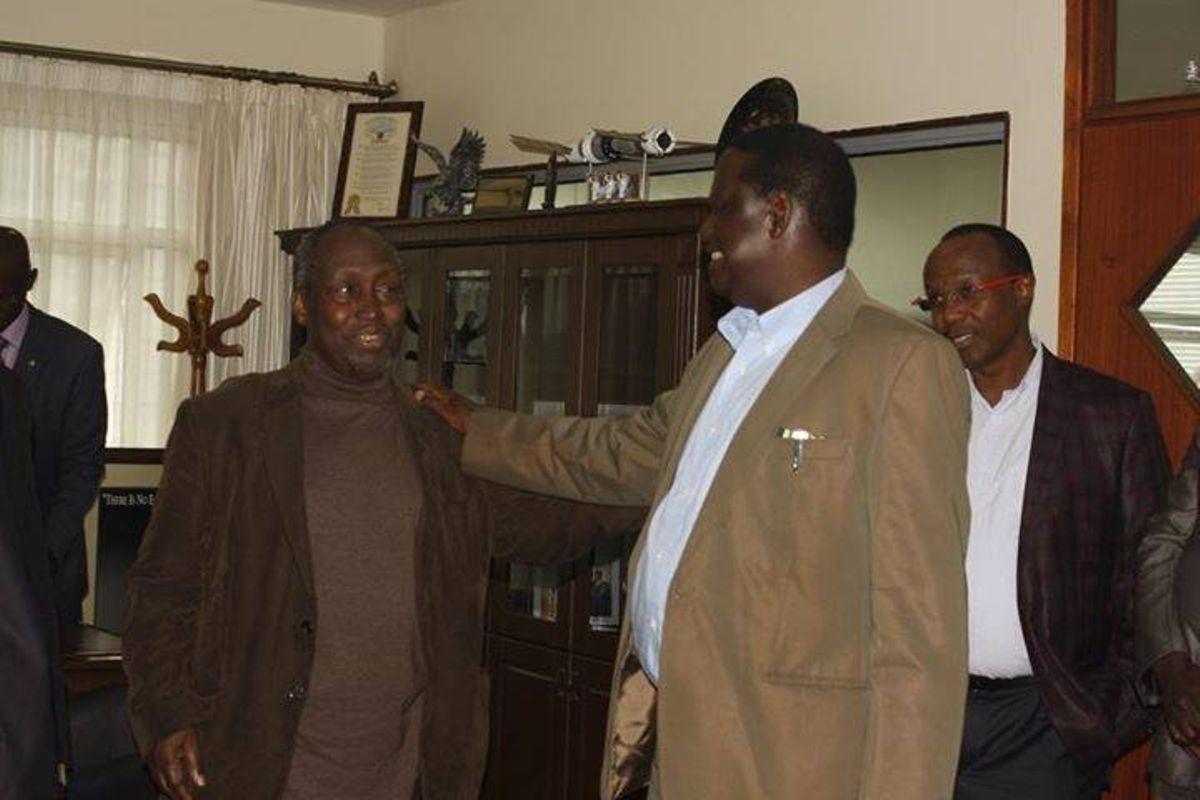
Both Raila Odinga and Ngugi wa Thiongo were “helped” to escape from Kenya by the CIA. Coincidence?
Ngugi’s “escape” from the Moi regime in the late 1970s, a fortuitous flight to the United States at a time when the American government was selectively granting asylum to figures deemed strategically valuable, reeks of a sinister orchestration. While genuine prisoners of conscience those who posed a real threat to despotic regimes languished in incarceration or faced execution under the brutal regimes of Jomo Kenyatta and Daniel arap Moi, Ngugi and other curated “dissidents” like Raila Odinga were spared, their survival a testament to their utility in a larger geopolitical design. This selective preservation of certain voices reveals the hypocrisy at the heart of American democracy a hypocrisy that persists to this day.
The United States, a self-proclaimed bastion of liberty, has consistently cherry-picked its beneficiaries, offering refuge to wealthy white South African farmers, complete with land and tools to thrive, while turning a blind eye to authentic dissidents and political opponents of rogue regimes. Such duplicity underscores a perennial truth: the Western establishment has never been a disinterested arbiter of justice but rather a calculating architect of influence, propping up figures like Ngugi to create the illusion of opposition while entrenching the very dictatorships they purported to challenge.

The decision to extend refugee status to white farmers of South Africa while overlooking actual dissenters and political prisoners elsewhere, exposes American hypocrisy
Ngugi’s complicity is particularly egregious given the platform he wielded. Throughout the Moi era, his set-books were enshrined in Kenya’s national curriculum, their narratives permeating the consciousness of young Kenyans and shaping the ideological landscape of an entire generation. Yet, one must interrogate the substance of these texts: did they ignite a revolutionary fervor? Did they galvanize protests or incite a tangible call to action against the oppressive regimes they ostensibly critiqued? The answer is a resounding no. Far from being a clarion call for liberation, Ngugi’s writings steeped in the rhetoric of resistance served a more insidious purpose: they provided the semblance of a vibrant intellectual discourse, a façade of divergent opinions that masked their true function as instruments of control.
These works, bankrolled by foreign intelligence, were not meant to dismantle the edifices of tyranny but to perpetuate them, ensuring that the Kenyan populace remained ensnared in a cycle of passive acquiescence while foreign vested interests, in collusion with dictatorial regimes, plundered the continent’s resources with impunity. Ngugi’s intellectual deceit lies in this paradox: a purported champion of the marginalized who, knowingly or unknowingly, advanced the agenda of their oppressors, all while reaping the delayed gratification of global acclaim and academic prestige.
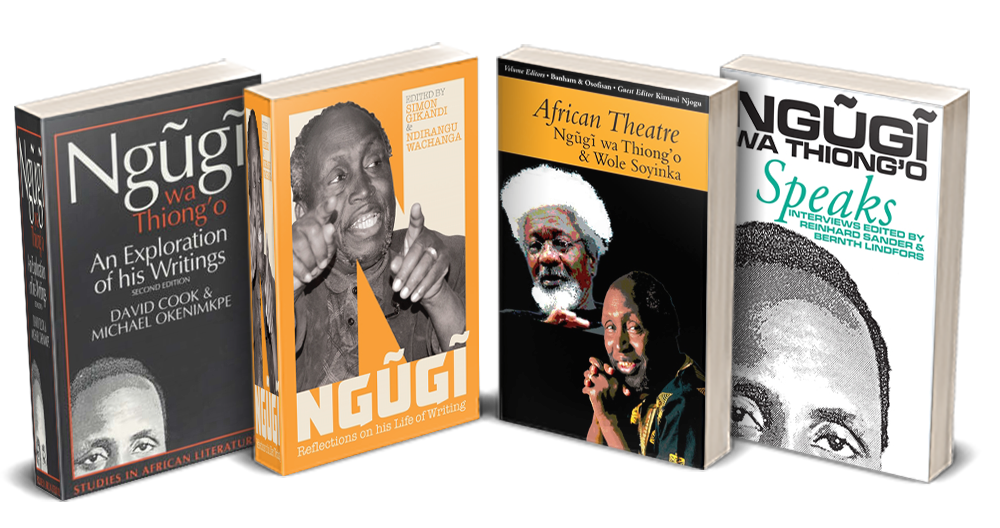
Ngugi wa Thiongo, Wole Soyinka, Chinua Achebe and others were cited as recipients of CIA money to shape ideological and geopolitical outcomes in Africa.
The NIS-Funded Voices: Stifling Revolution in the Digital Age
The legacy of this literary subterfuge extends far beyond the Cold War, its echoes reverberating in the post-Cold War era and into the present day. Fast-forward to 2025, and the playbook of intellectual manipulation has evolved, but its essence remains unchanged. Under President William Ruto’s administration, which has been marred by accusations of serving as a comprador for Western imperialism, a new cadre of influencers, podcasters, journalists, and bloggers has emerged as the modern equivalent of Ngugi’s Cold War-era complicity.
These digital voices, on the payroll of the National Intelligence Service (NIS), are tasked with a singular mission: to stall the revolutionary momentum that has been brewing since the #RejectFinanceBill2024 protests. These protests, led largely by Generation Z, marked a turning point in Kenyan resistance, rejecting Ruto’s neoliberal policies and demanding systemic change. Yet, the NIS-funded operatives work tirelessly to dilute this energy, flooding social media with narratives that either discredit the protests or sow division among Kenyans, often along ethnic lines a tactic reminiscent of historical election violence under leaders like Moi and Kibaki.
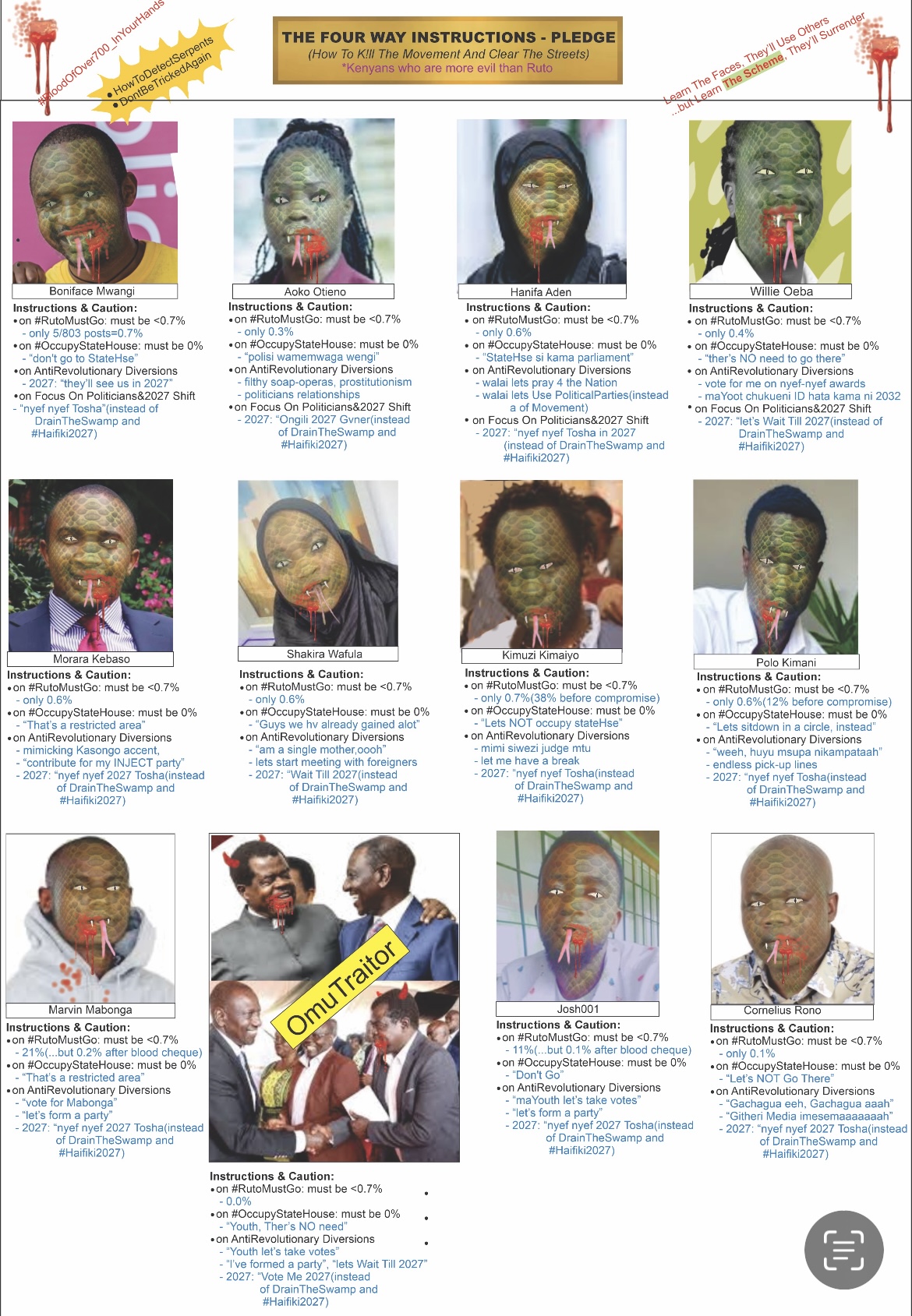
NIS RATS: Boniface Mwangi, Hanifa Adan, Aoko Otieno, Willie Oeba, Morara Kebaso, Shakira Wafula, Kimuzi Kimaiyo, Polo Kimani, Marvin Mabonga, Okiya “Omutraitor” Omtatah and Cornelius Ronoh
CASE STUDY OF STATE-INFILTRATION: Nation Media Group and Its Vile State-Sponsored Lackeys: A Legacy of Division and Deceit
Nation Media Group (NMG) has become a breeding ground for the most loathsome, divisive, and brain-dead scoundrels Kenya’s media space has ever seen. It’s no accident that this so-called media giant, a festering blight on journalism, has churned out a parade of despicable hate-mongers like David Ndii, Mutahi Ngunyi, Eric Ngeno, Munyori Buku, Makau Mutua, Hanifa Adan, and Gabriel Oguda, each one a sniveling stooge for successive regimes. These vile columnists, nothing more than intellectual prostitutes, have been propped up by NMG to spew their toxic filth, sowing ethnic discord and propping up bloodthirsty, cannibalistic politicians while Kenya drowns in poverty and misrule. NMG’s obsession with platforming these moronic, tribalism-obsessed clowns, while ignoring anyone with a shred of expertise in technology, arts, or sports, is a sickening testament to their depraved agenda of entrenching anti-intellectualism for profit.
This isn’t just negligence; it’s a deliberate, nauseating trade in ideological whoring, where NMG meticulously grooms these gutless, bottom-feeding degenerates to infiltrate Kenya’s intellectual spaces, all while being bankrolled by the government to peddle its dirty agendas and crush any hint of revolutionary spirit.
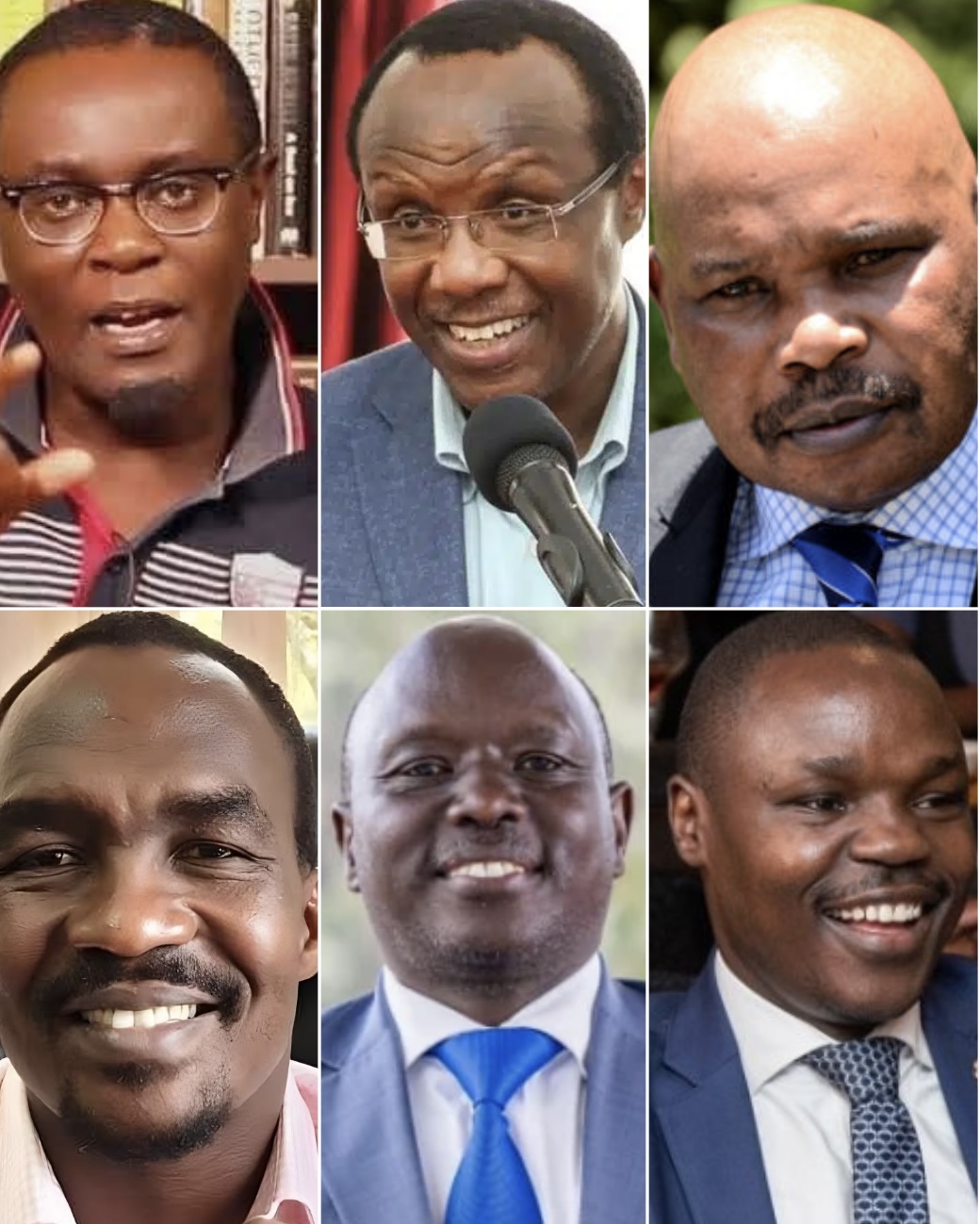
STATE-SPONSORED PROPAGANDA HOODLUMS: Mutahi Ngunyi, David Ndii, Makau Mutua, Eric Ngeno, Munyori Buku & Gabriel Oguda
Look at these pathetic excuses for thinkers: David Ndii, a pompous charlatan with the depth of a puddle; Mutahi Ngunyi, a slimy, opportunistic leech; Eric Ngeno, a spineless yes-man whose claim to infamy is brokering platforms to help William Ruto spy on Kenyan’s phones; Munyori Buku, a talentless hack moulded by Uhuru Kenyatta; Makau Mutua, a sanctimonious fraud; Hanifa Adan, a shameless cheerleader for oppression; and Gabriel Oguda, a sniveling propagandist masquerading as a critic.
Each one, after perfecting their craft of division at NMG, slinks into cushy state jobs, a revolting reward for their betrayal of the Kenyan people, ensuring that movements like the #RejectFinanceBill2024 protests are suffocated under their putrid propaganda.
Nation Media Group, a purveyor of filth, has cemented its legacy as a major architect of Kenya’s endless misery, a githeri media rag that thrives on amplifying these soulless, government-funded puppets while silencing true revolutionaries. NMG, for choosing to elevate these brainless, tribalistic numb-skulls over voices that could inspire real change has failed the nation just like Ngugi wa Thiongo.

Set-books like “The River Between” entrenched in the educational curriculum were carefully-curated psyops to pacify students and stall revolutionary sentiment
The parallels between Ngugi’s era and today are striking. Just as Ngugi’s writings provided a façade of resistance while pacifying the masses, these modern influencers create an illusion of discourse, amplifying pro-government rhetoric or distracting from the structural reforms that could follow Ruto’s departure. The potential gains of such a departure are profound: a reimagining of Kenya’s institutions to prioritize the working class, dismantle neocolonial economic policies, and reclaim national sovereignty from Western influence gains that Ngugi himself might have supported, as evidenced by his 2024 open letter to Ruto critiquing Kenya’s alignment with NATO and the deployment of Kenyan police to Haiti. Yet, the NIS-funded voices, much like Ngugi in his time, are oblivious or perhaps indifferent to these possibilities, prioritizing short-term financial gain over the long-term liberation of their compatriots. Their role is to gaslight the public, overwhelming the information environment with hashtags, repetitive messaging, and curated content that stifles the collective will for change.
Ngugi’s Hypocrisy and the Kibaki Economic Revolution: A Missed Opportunity
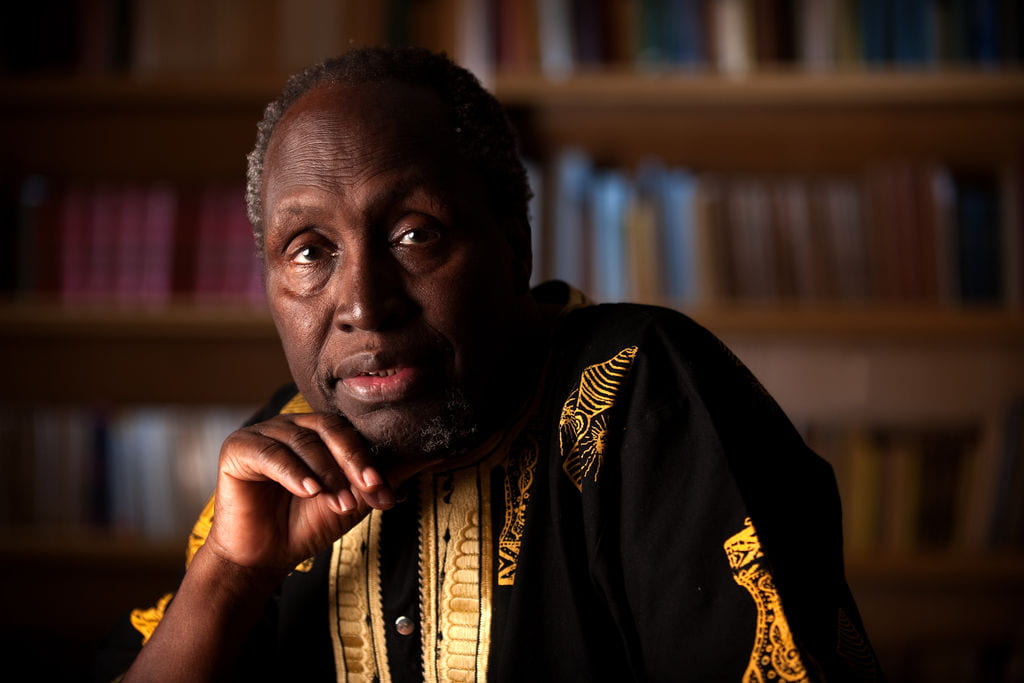
TRAITOR: Professor Ngugi wa Thiongo was no Pan-Africanist but a western mole.
Ngugi’s return to Kenya in 2003, after a 20-year exile, offers a lens through which to examine his hypocrisy and his discomfort with a transformation he did not orchestrate a discomfort that mirrors the current influencers’ inability to envision a post-Ruto Kenya. The election of Mwai Kibaki in 2002 marked the end of Moi’s 24-year dictatorship, ushering in a period of economic revitalization often referred to as the Kibaki economic revolution. Under Kibaki, Kenya saw significant GDP growth, infrastructure development, and the opening of previously suppressed spaces, such as the torture cells of the Nyayo House. Ngugi, who had long positioned himself as a voice for the marginalized, should have been elated by these developments. Instead, his reaction was one of cautious optimism tinged with skepticism, as noted in a 2003 interview with the Los Angeles Times. He warned of “Moism without Moi,” expressing concern that the systemic rot of the Moi era would persist, and worried that Kenyans’ expectations of Kibaki were too high.
This response betrays a deeper truth: Ngugi was unsettled by a revolution that unfolded without his intellectual imprint. Having spent decades in exile, crafting narratives of resistance from the safety of Western academia, he returned to a Kenya that had begun to heal itself through pragmatic governance rather than the radical ideological upheaval he might have envisioned. His critique of Kibaki’s administration while valid in its call for deeper institutional reform lacked the vigor one might expect from a true revolutionary. Instead, it reflected a sense of delayed gratification, a desire to remain the central figure in Kenya’s narrative of liberation, even as the country moved forward without his direct input.
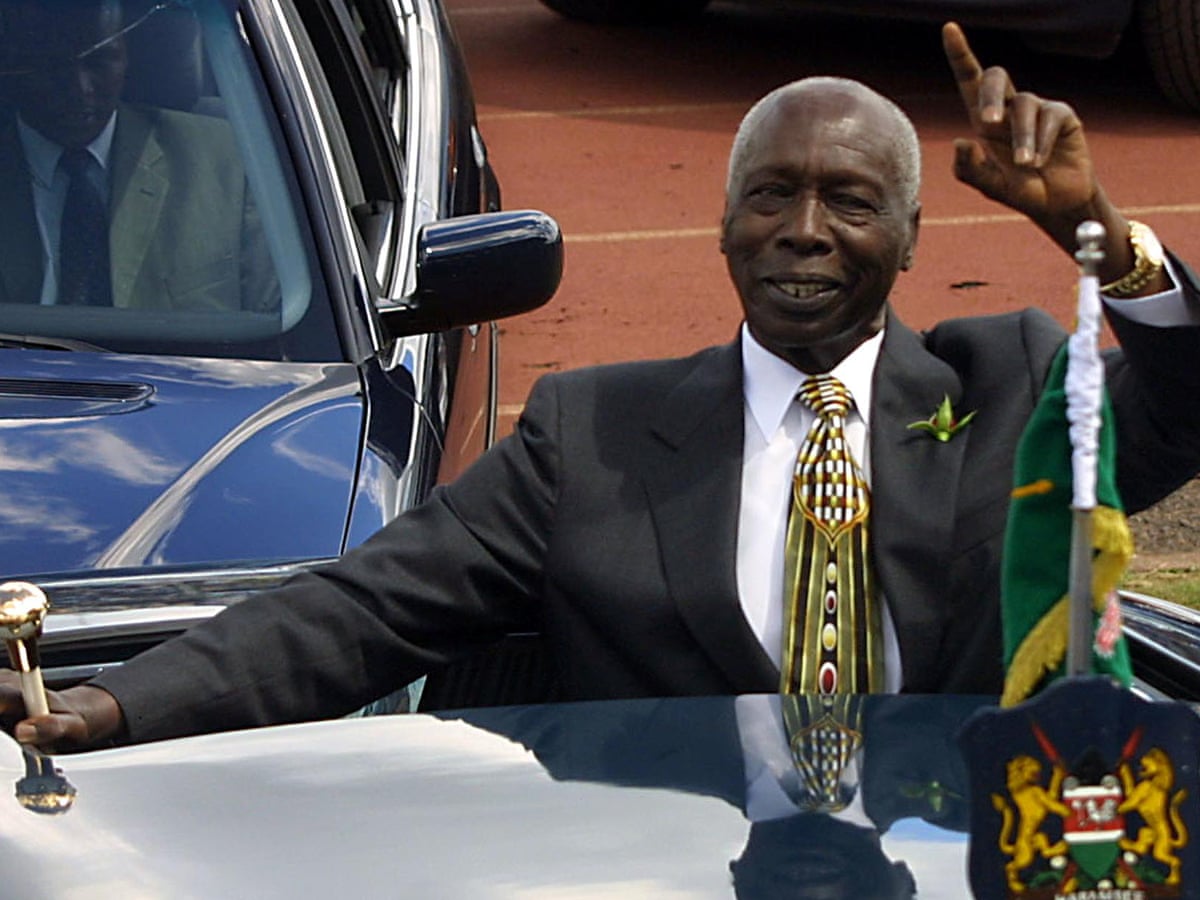
Ngugi wa Thiongo warned that “Moism without Moi,” expressing concern that the systemic rot of the Moi era would persist, and worried that Kenyans’ expectations of Kibaki were too high.
Ngugi’s hypocrisy lies in his failure to fully embrace a moment of progress, instead clinging to a purist vision of resistance that, ironically, had been compromised by his own entanglement with CIA agendas a hypocrisy that finds an echo in the current influencers’ obliviousness to the transformative potential of Ruto’s departure.
A Broader Indictment: The Geopolitical Chessboard and New-Age Literature’s Complicity
The comparison between Ngugi’s Cold War complicity and the current NIS-funded suppression of revolutionary momentum reveals a continuum of intellectual deceit that has consistently undermined Kenyan agency. Ngugi’s acceptance of CIA funds to shape ideological positions mirrors the willingness of today’s influencers to take NIS money to derail protests and reform efforts. Both instances reflect a betrayal of the Kenyan populace, who are tooled whether through literature or social media into passivity, their potential for liberation stifled by voices they trust. Ngugi’s set-books, devoid of revolutionary action, and the influencers’ trending hashtags, devoid of substance, serve the same purpose: to maintain the status quo, ensuring that the exploitation of Kenya’s resources by both local elites and foreign powers continues unabated.
This continuum is part of a broader pattern in new-age literature, which has failed to deliver on its promise of emancipation precisely because it was never intended to do so. Today, the same patterns of manipulation persist, albeit under more sophisticated guises. Western powers, once pitted against the Soviet bloc, now compete with emerging powers like China, yet their modus operandi remains unchanged: the exploitation and appropriation of African resources for their own aggrandizement.
The demonization of one power by another be it the Soviet Union then or China now is a mere distraction, a theatrical performance designed to obscure the fundamental equivalence between these global actors. Whether Western or Eastern, their intent is identical: to extract Africa’s wealth while maintaining a stranglehold on its political and intellectual autonomy. New-age literature, much like its Cold War predecessor, continues to serve as a tool in this enterprise, crafting narratives that position Africans as unwitting pawns in a geopolitical chessboard, their agency subverted by the very voices they revere as champions of their cause.
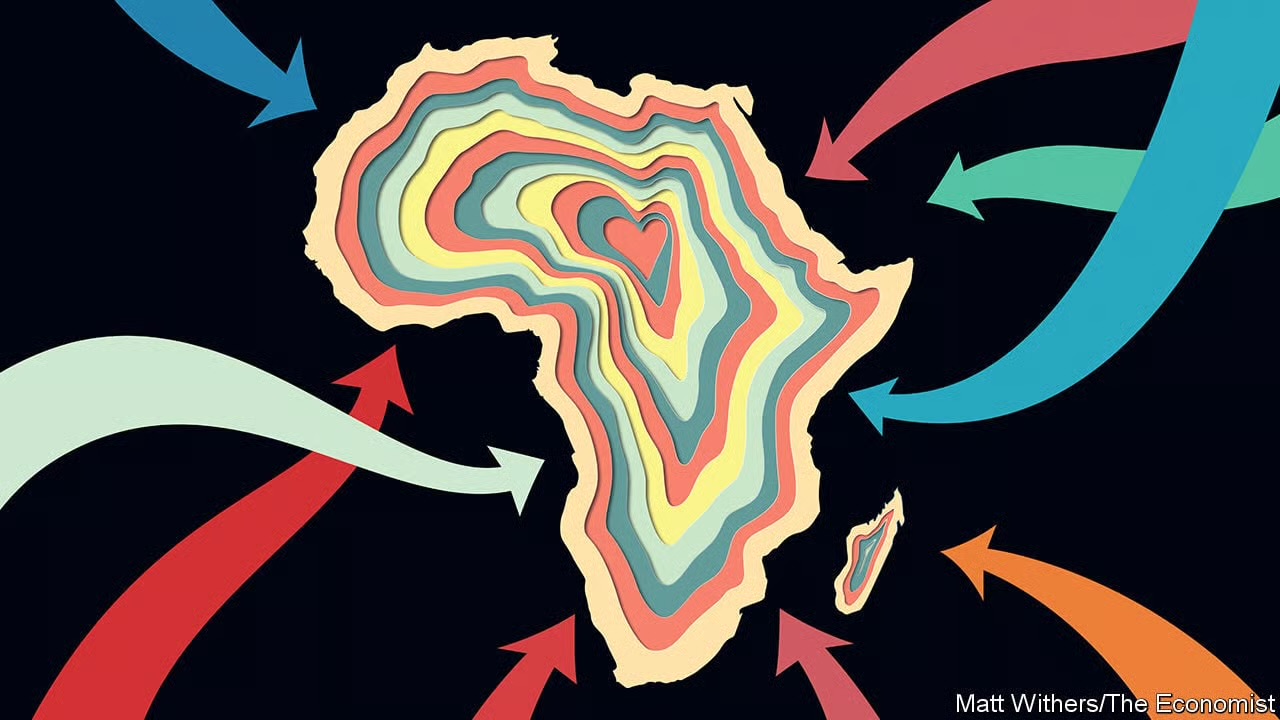
There’s a new scramble for Africa where global powers are pretending to fight on the public arena, but mutually and collectively benefiting from the continent’s resources
Conclusion: A Call for Uncompromised Resistance
The legacies of Ngugi wa Thiong’o and the current crop of NIS-funded influencers serve as cautionary tales of the dangers of intellectual complicity. Both have, in their respective eras, been co-opted by external forces be it the CIA or the NIS to pacify Kenyans, stifling the revolutionary momentum needed to break free from neocolonial chains. Ngugi’s hypocrisy, evident in his lukewarm reception of the Kibaki economic revolution, underscores a broader failure to prioritize collective liberation over personal or externally imposed agendas. Similarly, the influencers of today, by accepting NIS funds to derail protests, betray the very generation that looks to them for truth, oblivious to the structural reforms that could redefine Kenya’s future reforms that could reclaim national sovereignty, prioritize local economies over foreign interests, and empower a generation that has already shown its revolutionary mettle.
Kenyans, and indeed Africans at large, must awaken to this reality. The veneration of figures like Ngugi wa Thiong’o, while understandable, must be tempered by a critical reckoning with their complicity in a system that betrayed the very people it claimed to uplift. New-age literature, with its lofty ideals and ostensibly progressive ethos, is a literature of illusion, a mirage of resistance that conceals its true allegiance to the powers that have long exploited Africa.
To whom much is given, much is expected and in this regard, Ngugi and his contemporaries, as well as today’s NIS-funded voices, have fallen woefully short, their legacies tainted by the indelible stain of their role as intelligence assets. As we reflect on the past and chart a course for the future, let us reject this continuum of deceit, seeking instead uncompromised voices that align with our aspirations for sovereignty and justice. The revolutionary momentum of 2024 must not be allowed to dissipate under the weight of manipulated narratives.
Only by dismantling the mechanisms of intellectual control whether through CIA-funded literature or NIS-sponsored social media campaigns can Kenya forge a path toward true liberation, one that honors the sacrifices of its genuine dissidents and builds a future free from the shadows of neocolonial exploitation.
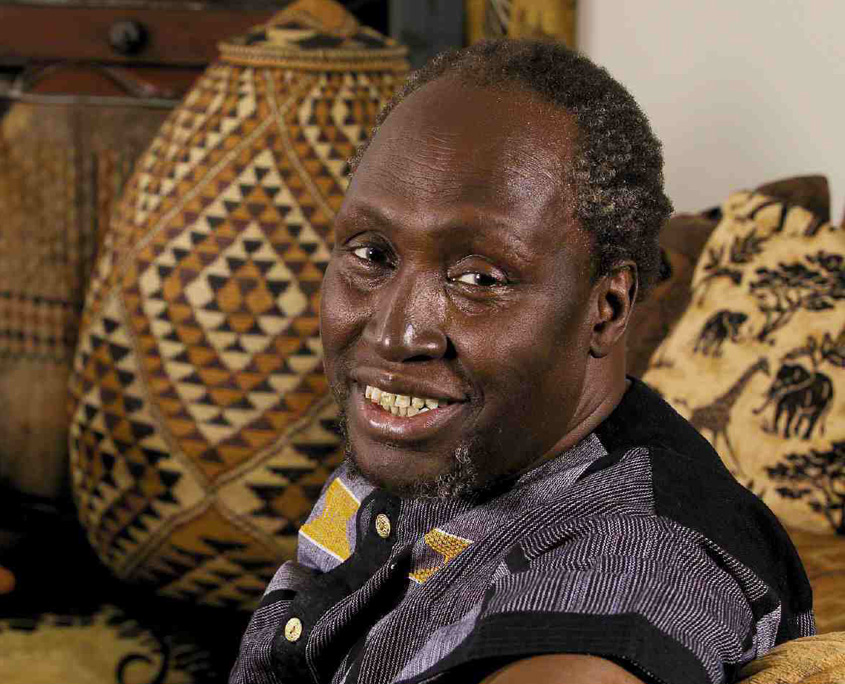

3 comments
Good work Gaitho. Unblock me on X please
Just finished reading, wow!
Awesome thread Gaitho.